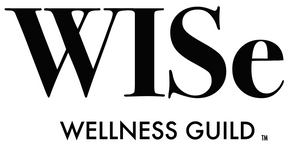
Listen Up: You Could Probably Be a Better Listener
Last week I had a casual conversation with a friend that took a surprising and inspiring turn. My friend, a warrior for the women's right's movement, shared how angry and disgusted she has become towards her "opposing party." Her anger was palpable, jarring, thought-provoking, and obviously deeply rooted.
Seeking to understand the origin of this anger, I used the 5 Whys Approach and found that her angst was catalyzed in the overturning of Roe v. Wade, an obviously incredibly complicated and nuanced subject. For my friend, Roe v. Wade ultimately represents privacy, equity and personal autonomy, and she believes that its overturning was a direct threat to her personal values, her sense of psychological safety and sense of belonging.
Through our conversation she was able to admit that not all members of her "opposing party are "bad people," and that likely many people who voted differently probably shared a lot of these same core values. She was also able to admit that she, herself, had not had many conversations where she was in a position to actively listen and understand other people's "whys."
Closing the deep divisions in our country requires a fundamental shift in how we engage with one another, and active listening is a powerful tool to bridge that gap.
In a time of tremendous discourse, it is frankly easier to simply label people or groups "good,""bad", "ally," "idiot," "safe" or "dangerous," but it is also incredibly dangerous. When we are weary and are desperately seeking a sense of psychological safety in community, group think can oftentimes shortcut incredibly complicated issues. Community cannot be built through dismissing or attacking differing perspectives, and progress can only be made through genuinely seek to understand them. It means setting aside our own biases, suspending judgment, and giving our undivided attention to others.
In my quest to become a better listener, I stumbled upon some invaluable advice from Sunny Sea Gold of Scientific American that truly struck a chord with me. And even if you think you don't need it, trust me, read on—you might be in for a surprise.
1. Check your assumptions
We all have a tendency to think we know what's going on in someone else's head. But that predisposition hampers genuine communication. By cultivating a sense of curiosity about the other person's perspective, you create an environment where they feel heard, and you can truly listen. My friend was surprised to hear that another mutual friend, one who happens to be Catholic and vote conservatively, recently was required to terminate a pregnancy early due to life-threatening risk factors. She was able to feel empathy for the weight that their impossible decision, and had hoped for better future outcomes.
>>Try: Verbalizing your assumptions and letting the person confirm or correct them. This requires a foundation of psychological safety and trust.
2. Get curious
Genuine curiosity has a remarkable effect—it prevents defensiveness. Instead of jumping to conclusions, ask open-ended questions and explore the reasons behind someone's feelings or actions. You might discover surprising insights, as my friend did when I asked her about her values. Being curious allows us to understand and accommodate others better.
>> Try: The 5 Whys Approach to getting to the root of issues, triggers and "whys."
3. Suspend judgment
Alternate viewpoints are often blinded by the passion of our own beliefs, even from our loved ones. When we are met with conflicting views we often treat them as a threat instead of asking for clarification.
>> Try: to suspend judgment and truly listen without interruption. This opens the door to empathy and shared understanding- and it is almost guaranteed you'll find more commonalities than you think.
4. Know when to tap out
Genuine listening requires presence, curiosity, and humility—qualities that cannot be faked. If you find yourself overwhelmed, stressed, or simply unable to give your undivided attention, it's okay to ask for a pause. Be honest about your limitations and express your desire to revisit the conversation later. Authenticity trumps pretense.
>> Try: If you feel drained and unable to listen to another word, instead of pretending be honest and set boundaries. Try again later, armed with renewed intention and attentiveness.
Active listening cultivates connections, promotes understanding, and paves the way for constructive conversations that can ultimately heal the fractures in our society, forging a path towards unity and progress. Let's challenge ourselves to become better listeners—to go beyond our assumptions, embrace curiosity, suspend judgment, and recognize our limitations. The rewards are immeasurable, leading to deeper connections, understanding, and a more harmonious life.
Want more tips from WISe? Subcribe to our newsletter.

Leave a comment